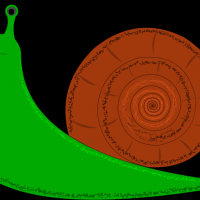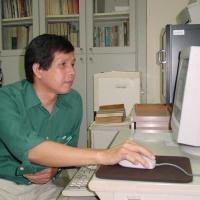Contribuții/Mesaje: 12
Limbă: English
Aaron94 (Arată profil) 26 decembrie 2012, 01:30:58
I searched "recognize" and the dictionary didn't have it. I "Rekoni" because I thought that that means recognize. The dictionary showed me recogniSe. Why with an S? This has happened before with another word as well.
dukemasuya (Arată profil) 26 decembrie 2012, 02:17:48
Aaron94:Mi priserĉis "recognize" kaj la vortaro ne havas ĝin. Mi priserĉis "Rekoni" ĉar mi opiniis ke tiu signifas "recognize". La vortaro montrita al mi "recogniSe." Kial kun S? Tiu okazis antaŭ pri alia vorto ankaŭ. Tiun be estas literumas korekte.I wouldn't say that it's a mistake. I, personally, would spell "recognise" that way. I think the Oxford dictionary acknowledges both spellings. If you don't mind me asking, which EN/EO dictionary were you using?
I searched "recognize" and the dictionary didn't have it. I "Rekoni" because I thought that that means recognize. The dictionary showed me recogniSe. Why with an S? This has happened before with another word as well.
Tempodivalse (Arată profil) 26 decembrie 2012, 02:24:03
In British English, words of this kind end in -ise rather than -ize (the latter is chiefly an American spelling). It's not an error, the dictionary is just defaulting to the British orthography. (I assume you're talking about the online Lernu dictionary?)
erinja (Arată profil) 26 decembrie 2012, 02:28:58
I've just added "recognize" and a bunch of other American -ize spellings of British -ise words, for a start.
Aaron94 (Arată profil) 26 decembrie 2012, 05:31:15
brodicius (Arată profil) 26 decembrie 2012, 10:24:32
Aaron94:It was pajamas. It was spelled pyjamas. Why is UK Enlish different?There are whole books about this.
Having an ocean in the way does present its difficulties when trying for consistency.
akbari (Arată profil) 26 decembrie 2012, 11:51:01
It was pajamas. It was spelled pyjamas. Why is UK Enlish different?I think it is American English that drifted from UK English, by modifying some spellings, not vice versa; and of course for betterment.
Pajamas/pyjamas is coming form Persian. It consists of pâ+ jâma/jâme (in iranian standard version)= foot+cloth/suit/cover.
erinja (Arată profil) 27 decembrie 2012, 01:23:52
Aaron94:It was pajamas. It was spelled pyjamas. Why is UK Enlish different?I just added that spelling to the dictionary.
You should look into the history but many US spellings were changed intentionally. You surely know the man who did it - Noah Webster!
He wanted to create an American variant of spelling that would be more logical and lend itself to a coherent and unified American culture. Many of his suggestions caught on but not all (he suggested "tung" for "tongue" - that's obviously one that never made it).
It's important to remember also that spelling was much more flexible in the past than it is today. It just got codified slightly differently in the US than in the UK (and each English speaking country has its own version, though places like Australia and Canada seem to be somewhere in between US and UK in spelling norms - neither fully one, nor fully the other).
manlajo (Arată profil) 27 decembrie 2012, 02:07:30
erinja:The dictionary sometimes has only the American spelling or only the British spelling of a given word. It would be great if you could post a list of all of the words that you've encountered this problem with -- someone can add in the missing versions, whether it's the British version missing, or the American.The Chinese dictionary has the same problem: characters in either traditional version or simplified version.
I've just added "recognize" and a bunch of other American -ize spellings of British -ise words, for a start.
Is it possible for the system to allow shift of versions (Traditional/Simplified Chinese) of the same dictionary?
erinja (Arată profil) 27 decembrie 2012, 03:04:00
It is very annoying but without some kind of pre-written list or application, it's hard to know what to do without a huge team of volunteers and countless hours of effort.





